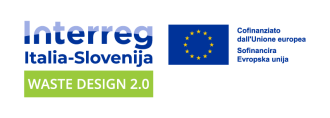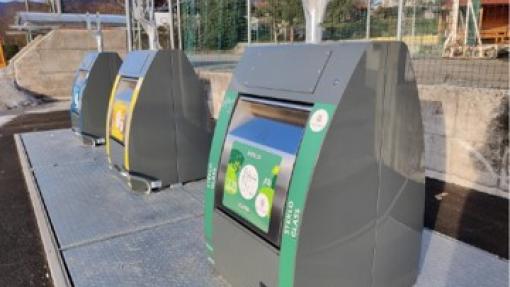In September, the final event of the European project Waste Design 2.0 took place at the Tourist Information Centre Infopoint in Sistiana (Duino–Aurisina). The Municipality of Postojna participated as the lead partner, together with four project partners from Slovenia and Italy.
The event brought together municipalities, a university, municipal utility companies, and the wider public, who had the opportunity to learn about the project’s achievements and the guidelines for the further development of the circular economy in the cross-border area.
Waste Design 2.0: the path towards a circular economy
The Waste Design 2.0 project ran from 1 October 2023 to 30 September 2025. Its main goal was to contribute to the transition towards a circular economy through improved waste management, the promotion of recycling and reuse, and the reduction of the environmental impact of waste. Particular emphasis was placed on the use of digital technologies and on raising public awareness.
The project was designed as an example of cross-border cooperation within the framework of the Interreg VI-A Italy–Slovenia Programme. In addition to the Municipality of Postojna as the lead partner, the partners included Komunala Izola d.o.o., the Municipality of Nova Gorica, the IUAV University of Venice, and the Municipality of Duino–Aurisina.
The project had a total value of €738,982.80, of which €591,186.24 was co-financed by the European Regional Development Fund (ERDF).
Postojna as a model of good practice
As the lead partner, the Municipality of Postojna carried out a series of key activities aimed at improving the local waste management system. The most important achievement was the establishment of underground ecological collection points on Pretnerjeva Street in Postojna and at the Cultural Centre in Landol.
Pretnerjeva Street in Postojna before and after the installation of ecological collection points within the framework of the Waste Design 2.0 project.
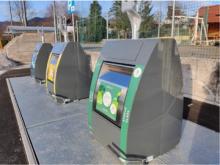
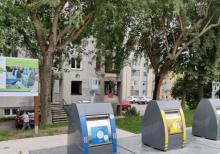
Before the introduction of the new solutions, traditional above-ground waste containers were installed at these locations. These often caused spatial limitations, visual disorder, and exposure to weather conditions.
The replacement with modern underground ecological collection points brought numerous advantages: greater space efficiency, an improved aesthetic appearance of public areas, and a more durable long-term solution. In addition, the systems are equipped with digital fill-level monitoring, which enables optimized and more cost-effective emptying of containers.
Development of common solutions and testing of innovative technologies for more efficient waste management and reuse in support of the circular economy in Landol.
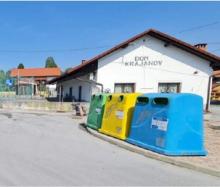 .
.  .
. 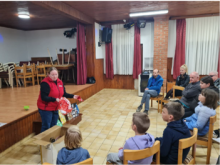
The Municipality of Postojna also devoted special attention to raising public awareness.
As part of the project, workshops were organized for residents, schoolchildren, and associations, where participants learned about proper waste separation, the importance of recycling, and sustainable ways of managing resources. At the opening of the ecological collection point in Landol, a practical workshop was also held by the company Kovod, which, through a demonstration of waste separation, highlighted the importance of daily care for a cleaner environment.
Awareness-raising workshops in the Municipality of Postojna within the framework of the Waste Design 2.0 project – residents learned about proper waste separation, the importance of recycling, and sustainable resource management.
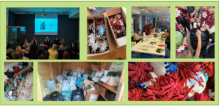
The results in Postojna show that with the introduction of these solutions, public awareness has increased, while the number of mistakes in waste separation has decreased.
International cooperation for sustainable development
The final event of the European project Waste Design 2.0 provided an opportunity to present the results of all partners, who showcased innovative approaches to waste management – from smart bins and underground ecological collection points to the design of urban furniture made from recycled materials. The discussion and press conference also opened up space to look towards the future – how to build on the achievements and extend them to new local communities.
The circular economy as a common path forward
With the Waste Design 2.0 project, the Municipality of Postojna has gained new sustainable solutions that will continue to benefit both residents and the environment. The project also demonstrated that, through international cooperation and innovative technologies, it is possible to successfully realize the vision of a greener, low-carbon, and circular society.
The Waste Design 2.0 project was co-financed by the European Union under the Interreg VI-A Italy–Slovenia Programme.
